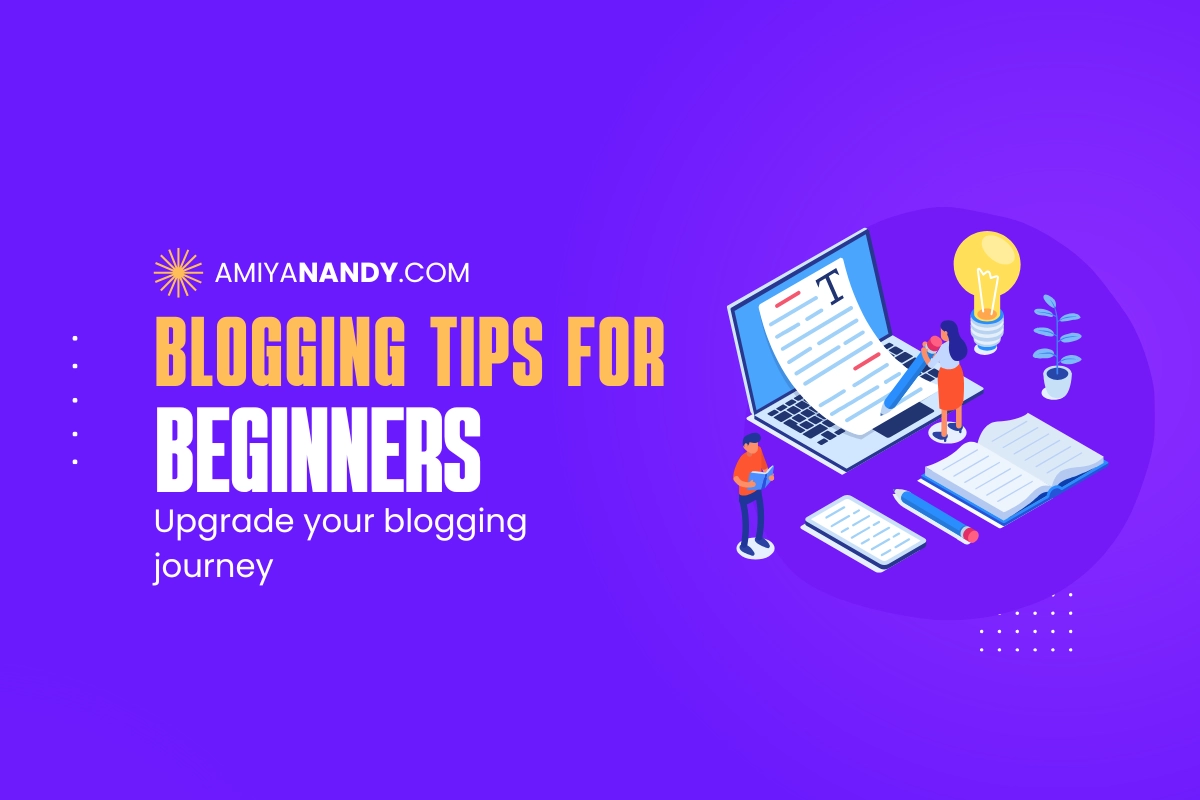Do you want to find the most effective platform to begin your blog?
You may be looking to make money or just express your passions there are plenty of both free and paid tools that can assist you to set up your blog in a short time.
How do you choose the best one? This is the reason this guide is here.
In the beginning, we’ll give you some quick suggestions about choosing a platform for blogging. Then, we’ll dive into a carefully selected list of the best options starting with open-source platforms, and moving on to hosted ones.
What are the top blogging platforms?
When selecting a platform to host your blog it’s crucial to match your selection to your personal requirements. In order to make the right choice first, you must understand the goal of your blog, and then creating an outline of the essential as well as optional functions. Here’s a list of the things you should consider:
1. The purpose of this blog
Before you start consider the reason you’re creating this blog. Your answer will help you decide on your list of features. For example an amateur blog might just require simplicity and user-friendliness. If you’re hoping to earn money, however you’ll require an online platform that can provide various monetization options, such as advertisements, affiliate marketing and selling items.
A blog that is designed for personal use will focus on creativity A business blog requires more structured tools to manage content and marketing.
2. Self-hosted in contrast to. hosted platforms
In the world of blogging platforms there are two major kinds: hosted and self-hosted.
Platforms that are self hosted need you to purchase Web hosting, and also install blog software onto your servers. It might sound intimidating however it’s actually quite easy even for those who are new to the field. The main benefit is that you have complete control. You are able to modify the content according to your preferences and enjoy total control over your content. You’re not bound by the terms of another person’s and are able to add any features you require.
On the other hand, hosted platforms take care of everything. Simply sign up and the platform will handle hosting maintenance, security, and even hosting. This is the simplest choice, but it trades with some flexibility. This is ideal for people who are looking for a quick, simple way to get your blog up and running without stressing about the technical aspects.
3. User-friendliness
As blogger, you’ll be working a lot behind the scenes managing your blog. An intuitive interface is essential to ensure that your experience is enjoyable. Find platforms that provide easy-to-use dashboards and editors which help make writing and managing your posts easy. An easy-to-use backend allows you to concentrate more on the creation of content and less time finding out how to operate.
4. Options for customization and flexibility
The ability to customize is key for you to make your blog to be distinctive. The platform you choose should provide an array of templates and themes that are not just visually appealing, but also adaptable enough to be able to change to fit your brand’s style. In addition, you should determine if you are able to add customized code, or plugins to enhance the functionality of your site.
The more flexible the platform you choose to use the more flexible it is to modify your website to fit your goals. Certain platforms are limited in their customization options and other platforms, such as WordPress offer almost unlimited choices.
5. SEO has many features
If you are planning to expand your blog’s popularity Search engine optimization (SEO) is crucial. A lot of blogging platforms have SEO tools built into their platform, while some allow integration of other SEO-related plugins from third parties. Check to see if your blog platform is compatible with SEO-friendly practices, such as meta descriptions, custom URLs and management of keywords.
Selecting a platform with strong SEO capabilities will ensure that your content will be found in search engines, bringing an increase in organic visitors to your site.
6. Extensions and tools from third-party companies
The more integrations your platform allows the more efficient. Certain platforms offer the marketplace of extensions and plugins that let you expand your blog’s capabilities. For example, WordPress offers thousands of plugins to help with anything from SEO and eCommerce allowing you to increase the size of your blog in the way you want.
If you’re looking to expand your options and growth opportunities, consider the platform that lets users to add features and tools easily.
7. Maintenance and security
Blog platforms must stay current to safeguard your content as well as personal information. Regular updates ensure security vulnerabilities are fixed and the latest features get added. The amount of maintenance needed is dependent on the particular platform.
If you choose hosted platforms typically, they take care of maintenance and security for you. If you choose self-hosted it is possible that you will need to manage these issues by yourself or employ someone else to take care of it.
8. Tools for marketing
Blogs aren’t just about writing, it’s about building an audience. Some platforms are equipped with built-in marketing tools, such as analytics, email subscriptions along with social media and analytics integrations. These tools can help you increase your reach as well as engage your customers.
If increasing your blog’s readership is your goal, search for platforms that have marketing tools from the beginning or let you integrate external tools.
9. Price
Don’t forget to take into consideration the cost. The blogging platforms are ranging between free and premium options that charge the payment of a monthly cost. The free platforms typically have only a few features or advertisements, while premium ones offer more control, with no ads as well as premium support.
Take a look at your budget and what you’re willing and able to invest in your blog, particularly in the event that you’re hoping to expand in the future. Remember that certain platforms may also charge additional fees like hosting and premium themes.
Best Open Source Blogging Platforms
These are the top picks for:
- WordPress.org: The most popular self-hosted system with an extensive amount of customization.
- Joomla is a versatile option for developers as well as advanced users.
- Ghost is a great choice for simple, fast-loading blogs.
- Drupal offers high customization and flexibility for large websites.
- SilverStripe is a combination of the flexibility of HTML0 with the ease of managing content.
- Hugo The fastest static site generator designed for techno-savvy bloggers.
- Grav CMS with a flat-file that’s simple yet effective.
WordPress.org
WordPress.org stands out as the world’s most popular open-source blogging platform, powering over 43% of websites globally, including many top blogs. It offers unmatched flexibility, allowing you to build virtually any type of blog. Whether you prefer working with HTML or using the intuitive visual editor, creating content is a breeze. It also provides advanced features like media management, user roles, and permissions.
With access to thousands of themes and plugins, both free and paid, you can customize every aspect of your site without needing to code. WordPress is highly scalable, meaning it’s suitable whether you’re running a personal blog or a professional one with plans to monetize. Plus, you’ll benefit from owning your data and have a vibrant support community to help you along the way.
💰 Price: Free, but you’ll need hosting (I recommend Hostinger).
Joomla
Joomla is an open-source community-driven CMS specifically designed for those who wish to have more control over their blog content. It’s brimming with blog-friendly features like multi-user permission levels front-end editing, and an effective media manager. It can be used to organize content by using endless nested categories. This makes it ideal for blogs with structured content. It is compatible with 70 languages and includes SEO tools to increase the visibility of your blog. Joomla also excels at managing interactions with users which makes it the ideal platform for forming communities for your site. But, the platform’s slow learning curve and a limited number of options for customization could take some time to get familiar with.
Price Free Hosting plans begin at $5 per month for Joomla servers.
Ghost
Ghost is a lightning-fast blog platform that is built on JavaScript providing tools for bloggers who wish to earn money from their writing via subscriptions. You can design custom homepages, include dynamic content such as NFTs and videos, and increase your reach by incorporating subscription forms as well as marketing emails.
Ghost is also optimized for SEO and also supports AMP for mobile-friendly pages that load faster. However, it is limited in themes and will require a little small amount of effort to DIY setting up.
Pricing:
- Self-hosted: Free.
- Ghost (Pro) plans:
- Starter: $9/month (500 members).
- Creator: $25/month (1,000 members).
- Team $ 50/month (1,000 members, plus features).
- Business: $199/month (10,000 members).
Trial for 14 days is free.
Drupal
Drupal is a dependable secure, secure, and flexible open source CMS perfect for creating sophisticated and complex blogs. It has an extensive taxonomy with multiple levels, strong media support, as well as advanced user rights, making it ideal for large-scale projects. Its modular design permits customization and even make use of pre-packaged content kits known as distributions, to create starter templates. While flexibility is an advantage but the technical knowledge required to set it up and maintain it could require some assistance.
Price: Drupal software is absolutely free. It is necessary to pay for hosting and employ developers to help with the setup and maintenance.
SilverStripe
SilverStripe is an open-source, flexible CMS created to offer smooth digital experiences. It’s adaptable through its own standalone PHP Framework, SilverStripe Framework. This framework is well-known for its user-friendly, maintainable code structure, which makes it a great choice for developers. SilverStripe can be adapted to work with intranets, blogs websites, as well as sophisticated web applications, including options like interaction-based design, social integration and transactions capabilities.
It comes with powerful API integration, cache and cloud support for multi-servers that ensures scalability and flexibility for websites with lots of content.
Price Free for self-hosting. For SilverStripe’s managed cloud-hosted hosting, plans begin at $425 per month.
Hugo
Hugo is a lightning-fast static website generator designed for bloggers who are tech-savvy. Written in Go Hugo’s main characteristic is its speed, that can load thousands of web pages within seconds. This makes it an excellent option for bloggers or developers managing sites that receive a lot of traffic. It’s also extremely customizable and supports Markdown and has powerful tools built-in, including taxonomies, types of content and many more. Hugo is light and perfect for those looking for speedy development times and with the possibility of scaling.
*Price$0, however you’ll require a separate hosting service for your website.
Grav
Grav is an open-file CMS that was designed to be simple and has power. It’s an open source platform that is known for its high performance and its flexibility. Grav does away with the need for a database by storing information in files which makes it simpler to manage and host. Grav comes with powerful editing tools, works with different languages and is able to be expanded by utilizing plugins. Themes can be made customizable and allow you to control the appearance and style that your site will have. The CMS is safe and is ideal for developers looking for a lightweight but scalable solution.
Price Grav is completely available for free, however you’ll need to pay for hosting. Certain themes and plugins may include cost. If you require additional managed services, Grav’s Cloud hosting packages start at $9.99 per month.
Best Hosted Blogging Platforms
Here are our top picks:
These platforms offer a range of features suitable for bloggers of all levels, from easy setup to advanced customization options.
HubSpot CRM Hub
HubSpot’s CMS Hub is an all-in one solution for creating websites. It integrates seamlessly with HubSpot’s marketing and CRM tools, driving conversions. The HubSpot CMS Hub offers a variety of themes that can be customized, a drag-and drop editor and the capability to create content in different languages. Users will enjoy a personalized experience with built-in marketing features such as lead collection and blog analytics. The base version of HubSpot is free up to 25 pages, with HubSpot branding. However, the higher packages include advanced SEO and CRM functionality for greater customization and scaling.
Price:
- The free plan allows you to use HubSpot branding on up to 25 pages of your website.
- Starter: $23 per month, providing essential tools for smaller websites.
- Professional: $360 a month unlocks advanced features such as custom SEO reports.
- Enterprise: $1200 per monthly, offers comprehensive tools for large companies, including high-level features of CRM.
This combination of CMS tools and marketing tools is perfect for businesses that want to grow, engage their audience and manage content efficiently.
Wix
Wix is one of the most popular hosted website builders today. It’s a great choice for bloggers who want to build a dynamic presence online. Wix’s intuitive drag-and drop interface simplifies the building of a blog. Users can customize their site without any coding experience. Wix makes it easy to create a blog, whether you want to start a new one or add a blogging function to your existing website.
You can create a design that is unique and reflects the identity of your brand by choosing from more than 900 customizable templates. Wix’s Artificial Design Intelligence will automatically create a website for you. This saves time and effort. Be mindful of the Preview option, as it can be difficult to change templates later.
Wix allows you to embed HTML code, schedule posts and use a rich-text editor for image editing. It also allows you to organize your content using categories and hashtags. This will make it easier for your readers to find your posts. Each Wix website includes essential tools such as Wix Analytics, built-in SEO, and blogging functionality. These are vital for increasing traffic and monetizing content.
Price Wix offers an unlimited free plan which includes 500GB of storage and a Wixsite.com domain. It also displays ads on the site. Website plans for personal use start at $17 a month and go up to $45. Plans for eCommerce and business start at $36 per monthly, and can be tailored to suit a wide range of budgets and needs.
WordPress.com
WordPress.com is a simple, one-stop solution to host your blog or site. It allows you to jump right into blogging, without having any complicated setup. The free plan is perfect for hobby blogs. Paid plans are also available for those who want to take blogging seriously.
This platform combines the powerful features of open-source WordPress with an easy-to-use hosted approach. It’s important to remember that self-hosting WordPress sites can limit your flexibility. For more information, see our comparison of WordPress.org and WordPress.com.
It’s easy to manage and create content with the intuitive, fast editor. You can also embed media files to enhance your posts visually. WordPress.com’s social media integration and SEO features help you reach a wider audience and grow your blog.
The paid plans offer a variety of features for those who want to improve their blogging experience. On higher-tier plans, you can install your own themes and plugins, use a custom URL, and remove WordPress advertisements. You get a lot of the same flexibility as the self-hosted WordPress.
Price The free plan displays WordPress ads and provides a WordPress.com domain. The paid plans are Personal ($4 a month), Premium ($8 a month), Business ($25 a month), and Ecommerce (at $45 / month). Each plan offers enhanced features that cater to eCommerce success.
Medium
Medium is a great platform for writers and thinkers who are serious about their work, but want to reach a niche audience. You can publish your articles and thoughts without paying any upfront fees. Its accessibility makes it a popular choice for people who want to share their thoughts with the world.
Medium’s real strength is its simplicity and its focus on writing. With just one click, you can easily share your content on social media platforms. This will increase your reach and engagement.
Medium’s Medium Partner Program is one of its most notable features. You can earn money as a Medium member based on the number of people who read your content. Medium is a great option for writers who also want to earn a little money. It’s important to remember that earning potential on Medium is limited and your audience depends largely on your presence in the Medium ecosystem.
You may want to look at other platforms if your goal is to earn a substantial income through blogging. Medium is more suited to writers who are looking for a part-time income than those seeking a full-time job.
Price : is free to use and allows you to publish without financial commitment.
Weebly
Weebly is a great blogging platform if you want to convert your blog into an eCommerce store, but are overwhelmed by the idea of starting from scratch. This easy-to-use website builder makes it simple to create business websites and online stores. It’s a great choice for anyone who wants to seamlessly combine blogging with online sales.
Weebly is primarily known for its intuitive interface that allows users to create blogs easily without extensive technical expertise. You can easily add blog pages to any website using the platform’s free templates. With this flexibility, you can create a blog that is compelling while also building your online presence.
Weebly also focuses on eCommerce and integrates with Square Payments, ensuring a seamless transaction experience for customers. It is a great choice for anyone who wants to monetize a blog and expand into online shopping.
Price Weebly’s free plan includes Weebly branding and limited features. It also offers bandwidth. The Personal plan costs $10 per month. Next comes the Professional plan, which is $12 per monthly, and finally the Performance plan, at $26 per monthly. All plans are billed annually. Remember that monthly billing is also available, but it will cost more.
Blogger
Blogger is an excellent choice if you want a simple and attractive blogging platform, that’s also easy to use. This platform includes all the tools you’ll need to start your blog. These include a text editor and image storage. It also comes with a few basic templates. With Blogger you can create a blog using a subdomain. You can also purchase a custom URL if you prefer a more personal web address.
Blogger is free to use forever and requires only a Google Account. Google takes care of all technical issues, so you can focus on creating and sharing content.
Blogger does not have eCommerce features, which could be a disadvantage if you want to sell products or services via your blog. You can still monetize blog pages with Google AdSense. This allows you to earn money based on traffic. Third-party advertising platforms, such as Mediavine or AdThrive, can be used to monetize your blog.
Blogger may be a bit limited if customization is a priority. Blogger allows for some customization, but the options aren’t as flexible as platforms like WordPress.
Price is free with a Google Account
Write.as
Write.as allows anyone to create blog posts and other writings.
The distraction-free environment of a writing program and the fast-saving editor keep you focused on your writing.
Ad-free environments keep the reader’s focus on the content.
Write.as keeps you private by design, with no tracking or forced registration.
You can create different identities and pen names for different blogs or writing contexts.
Price: Registrations for free accounts have closed on December 31, 2021. Pro packages start at $6 per monthly for personal blogs and include newsletters, photo hosting and up to 3 blogs. The Team plan is $25 per month and includes all Pro features plus add-ons and support for multiple users.
Squarespace
Squarespace is an all-in one website builder that caters to creatives and bloggers who are looking for a visually appealing, sleek online presence. Squarespace is known for its beautiful templates and easy-to-use interface. It allows you to build a professional blog, without needing any technical knowledge. The platform focuses on design and offers a variety of customizable templates, which are optimized for mobile devices. Your content will look great on any device.
Squarespace’s powerful tools for marketing and content management are some of its most impressive features. You can schedule blog posts easily, manage categories, tags and track the performance of your site with integrated analytics. You can also embed multimedia files, such as videos, audios, and images. Squarespace also includes powerful SEO features that allow you to optimize your website for search engines, and increase your online visibility.
Squarespace offers robust eCommerce features, which makes it a great choice for bloggers who want to monetize content via product sales or subscriptions. You can transform your blog into an actual business by setting up an online shop, managing inventory and processing payments.
Squarespace is a subscription-based service. While it offers a trial period, a fee per month will be charged for continued use. Pricing plans are tailored to meet different needs. They range from basic personal features to more advanced business tools. However, customization options can be limited when compared with platforms such as WordPress.
Pricing Squarespace offers a variety of pricing plans, from the Personal plan, at $16 a month, with essential features, up to the Business plan, at $26 a month, including advanced eCommerce functionality and marketing tools.
Create Your Blog Today!
This concludes our list of the best blogging tools! We recommend the open-source WordPress program if you want to create a blog which can be used as a source of income or even become a full-time business. The setup process is a little more complicated than other platforms but it’s still manageable by non-technical users.
WordPress’s advantage lies in its complete control over your blog and the countless options for marketing and monetization it provides. WordPress is the best platform for bloggers who want to take their blog to the next level.
If you want to start a hobby blog for free, WordPress.com or Blogger are great options. Medium is another option that allows you to easily share your work without having to worry about complicated setup.
Consider your needs before choosing one of these platforms. There’s a blogging platform that’s perfect for you, whether it’s because of its simplicity, flexibility in design, or eCommerce features.





